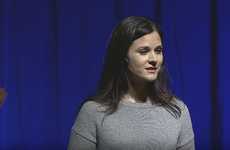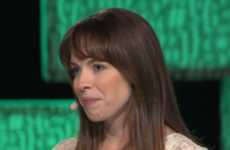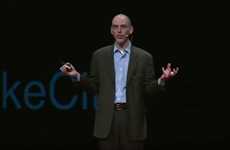
Need Inspiration?
Get inspired by 4,000+ keynote speaker videos & our founder, a top keynote speaker on innovation.
In His Talk on Cancer Research, Jimmy Lin Considers a New Blood Test
Riley von Niessen — August 9, 2017 — Keynote Trends
References: drjimmylin & youtube
Jimmy Lin, a geneticist who's currently the Chief Scientific Officer at Natera, begins his talk on cancer research by talking to his audience about the grief that's associated with the disease, and the improvements that have recently been made in stopping its spread.
Throughout his talk on cancer research, Lin goes over some of the challenges that scientists have faced so far, and how the disease can come back after treatment. Afterwards, Lin considers the importance of screening procedures, as well as the cost of the infrastructure that goes into them.
Although there's a variety of screening procedures available today, there's a number of drawbacks that are associated with each of them. To improve on this, Lin says that it was important to find an alternative that's non-invasive, light on infrastructure, is highly specific, has a low false positive rate, does not use harmful radiation, and is universally applicable.
Lin's solution is a new blood test which allows scientists to do DNA extractions efficiently, which can then catch cancer cells in their earliest stages so that they can be treated as quickly as possible. In comparison to traditional screening procedures, this simple blood test can catch cancer up to 100 days earlier.
Although this method is still being researched, Lin's talk shows that tremendous progress is being made, and that the "war on cancer" will soon be won.
Throughout his talk on cancer research, Lin goes over some of the challenges that scientists have faced so far, and how the disease can come back after treatment. Afterwards, Lin considers the importance of screening procedures, as well as the cost of the infrastructure that goes into them.
Although there's a variety of screening procedures available today, there's a number of drawbacks that are associated with each of them. To improve on this, Lin says that it was important to find an alternative that's non-invasive, light on infrastructure, is highly specific, has a low false positive rate, does not use harmful radiation, and is universally applicable.
Lin's solution is a new blood test which allows scientists to do DNA extractions efficiently, which can then catch cancer cells in their earliest stages so that they can be treated as quickly as possible. In comparison to traditional screening procedures, this simple blood test can catch cancer up to 100 days earlier.
Although this method is still being researched, Lin's talk shows that tremendous progress is being made, and that the "war on cancer" will soon be won.
1.7
Score
Popularity
Activity
Freshness

















